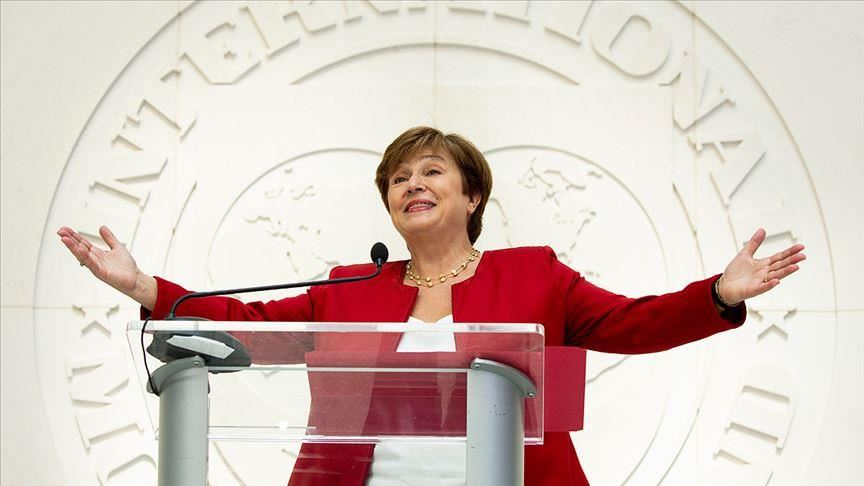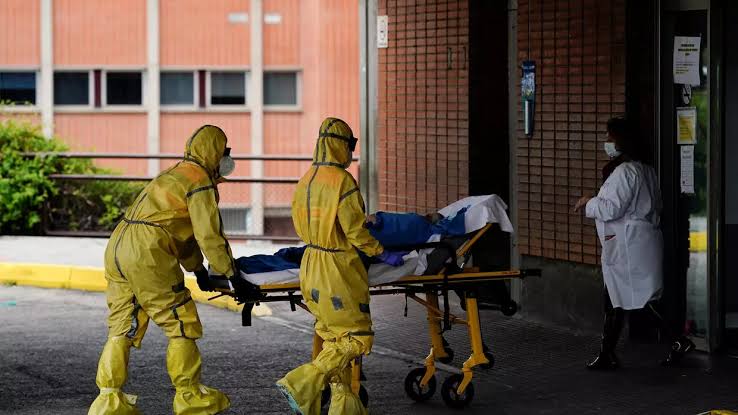The conundrum: Do we sustain the lockdown to contain coronavirus and risk the upsurge of insecurity and citizens’ unrest or do we lift the restrictions and find other means of controlling the spread of COVID-19?
For a country like Nigeria with complexities and deprecable socio-economic indices, imposing restrictions on movement for an extended period of time — asphyxiating the economy and pauperising small businesses – is Siberian. As it is, we cannot afford an extended lockdown! Lockdown measures are not sustainable.
As a matter of fact, some countries affected by coronavirus in Europe are beginning to realise that imposing lockdowns and shutting down economies, even though tad necessary, are reactive approaches.
On Monday, some workers in certain industries returned to duty after Spain lifted some lockdown measures in the country. CNBC reports that construction and factory workers in the Mediterranean country returned to work on Monday as the government lifted some of the most stringent lockdown measures. Spain is one of the worst-hit nations by Covid-19.
Advertisement
In Sweden, the government is sticking to a ‘’low-scale’’ lockdown. According to Washington Post, Sweden’s softer approach ‘’means that schools for younger children, restaurants and most businesses are still open’’ though the country banned gatherings larger than 50 people, closed high schools and universities, and asked those over 70 or otherwise at greater risk from the virus to self-isolate.
Sweden is of the opinion that total lockdown is not sustainable – in the long run.
Other European nations like Austria, Denmark and Czech Republic battling COVID-19 are considering easing lockdown measures.
Advertisement
Lockdown measures are not sustainable! They are at best a reactive approach to a hydra-headed problem. They can slow down the spread of COVID-19 – only for a while. But these measures cannot eliminate the spread of the disease or prevent re-infection.
I am of the view that owing to our complexities and parlous indices of armies of the poor and the unemployed, it is a defective idea to lockdown the country for an extended period of time. We cannot import wholesale the approach of other countries, much more advanced than we are, without care for our own unique situation and expect things to work out.
Even with the lockdown in the past two weeks, we have done only about 6,000 COVID-19 tests while Ghana is shooting above 35,000 in the aggregate of tests conducted so far. Why?
Really, we cannot afford another round of lockdown measures. The current insecurity in Lagos and Ogun will escalate and engulf more states. I am surprised the president did not address this pesky issue in his speech.
Advertisement
Is he really in the know of the current security crisis in these states fuelled by the restrictive measures? Is he abreast of the security implications of the extended lockdown? If he is, what is he doing about the challenge? He seemed not to have spared a breath for it in his second COVID-19 address to the nation.
Really, I had thought the president would roll out other plausible measures with strict enforcement such as – the compulsory use of face masks; reworking offices to meet social distancing criterion and mandating offices, markets, malls and public places to adhere to stringent hygiene routines. That was what I expected not this reprise of torture for Nigerians.
In addition, the president’s speech was laden with hollow promises – a recast from the empty pledges of the previous address.
What did the president mean when he said: “In the coming weeks, I want to assure you that the Federal Government, through the Presidential Task Force, will do whatever it takes to support you in this very difficult period.’’
Advertisement
The presidential task force has been in operation for the last two weeks but it seems to lack direction and purpose. How exactly is it going to help Nigerians at this time?
The head of the task force, Boss Mustapha, secretary to the government of the federation (SGF), confessed he did not know that Nigeria’s healthcare system is in a deplorable state. Also, a pivotal member of the task force, Osagie Ehanire, minister of health, told a national assembly panel that he is not aware if doctors are paid hazard allowance – at a time of great national emergency!
Advertisement
How are these people going to help Nigerians whom they are obviously far removed from?
Also, the president said: ‘’I have also directed that the current social register be expanded from 2.6 million households to 3.6 million households in the next two weeks. This means we will support an additional one million homes with our social investment programs. A technical committee is working on this and will submit a report to me by the end of this week.’’
Advertisement
As a matter of fact, increasing the number of households for cash transfer from 2.6 million to 3.6 million is commendable, but it is not judicious. Nigeria has over 95 million poor – what happens to the other indigents? This does not address the poverty of millions of other Nigerians who have been made poorer by the restrictive measures. Also, the parameter for the cash transfer register is contentious.
At this point, it appears Nigerians have been given two options – to die of hunger or to die of COVID-19. Either way it is death for them.
Advertisement
Fredrick Nwabufo is a writer and journalist.
Twitter: @FredrickNwabufo
Add a comment







